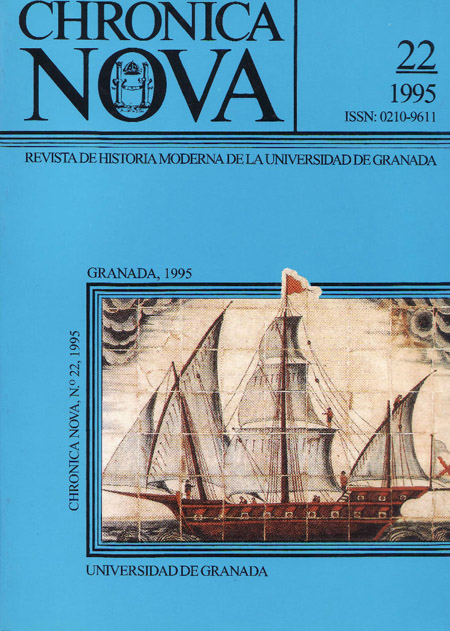Colonial commerce and bourbon reformism: from recovery to collapse of the commercial imperial system
DOI:
https://doi.org/10.30827/cn.v0i22.2124Keywords:
America, Colonial commerce, 18th century, IndustryAbstract
The Bourbon reformism pretends, according to the theory of colonial pact, to turn the Indias into an instrument for the economical reconstruction of the metropolis. This aim is recommended by the economists, and the politicians try to put it into practice. The result should be a slow and qualitative change of the structure of exportations and an impulse of the spanish industry. After analysing the information obtained, we conclude that Spain was not able to reduce the role of the colonies to mere producers of raw material and consumers of peninsular manufactures. On the contrary, Spain continued to be dependent on the most developed economies of west Europe to supply its colonies, because the expected answer from the national industry never arrived. National industry was neither prepared to compete with foreign industry nor with creole industry.
Downloads
Downloads
How to Cite
Issue
Section
License
Nuestra revista se atiene a las recomendaciones para la implementación del Artículo 37 Difusión en Acceso Abierto de la Ley de la Ciencia, la Tecnología y la Innovación:
- Los/as autores/as cuyas contribuciones sean aceptadas para su publicación en esta revista conservarán el derecho no exclusivo de utilizar sus contribuciones con fines académicos, de investigación y educativos, incluyendo el auto-archivo o depósito de los artículos aceptados en repositorios institucionales o temáticos de acceso abierto de cualquier tipo en un plazo máximo de seis meses.
- Preferiblemente se permitirá el uso de la versión publicada de las contribuciones científicas, que estarán accesibles en abierto tan pronto como sea posible.
-
Que en caso de que el trabajo sea aprobado para su publicación, el/la autor/a autoriza de manera ilimitada en el tiempo a la entidad editora para que incluya dicho texto en Chronica Nova y pueda reproducirlo, editarlo, distribuirlo, exhibirlo y comunicarlo en el país y en el extranjero por medios impresos, electrónicos, CD, Internet o cualquier otro medio conocido o por conocer.






 ISSN-e: 2445-1908
ISSN-e: 2445-1908










